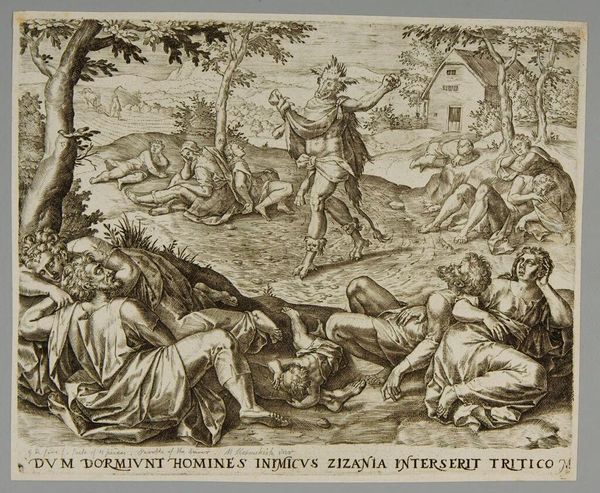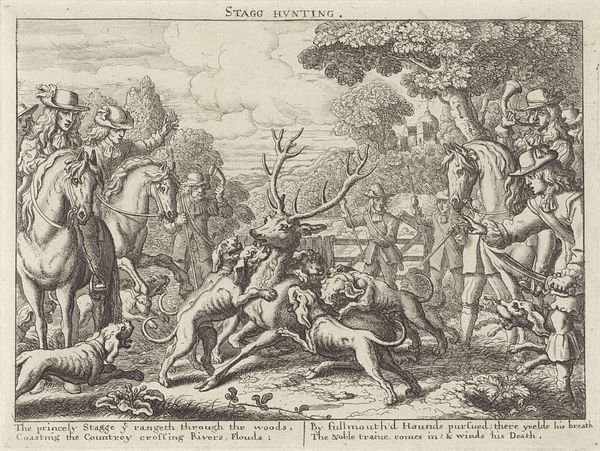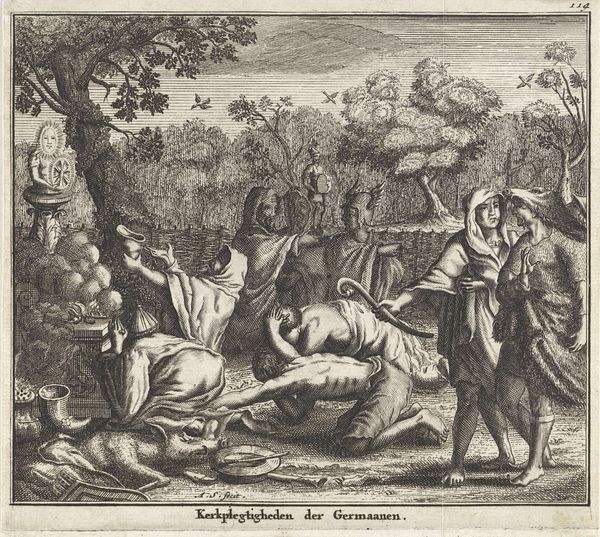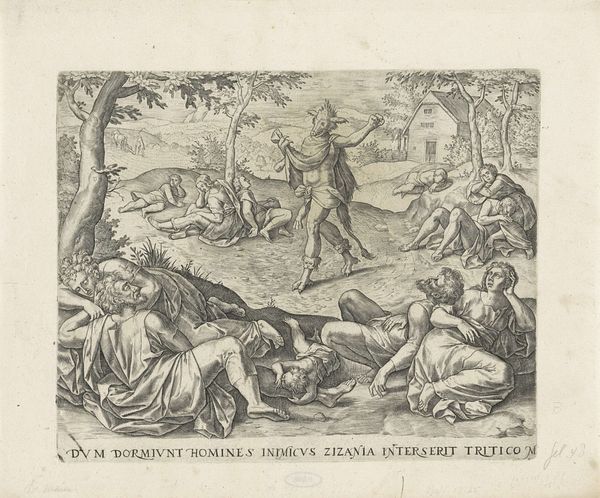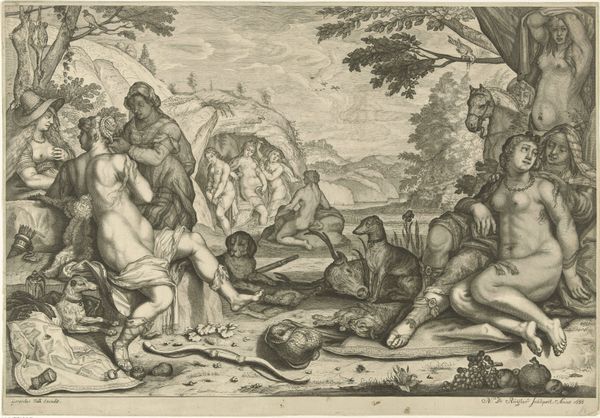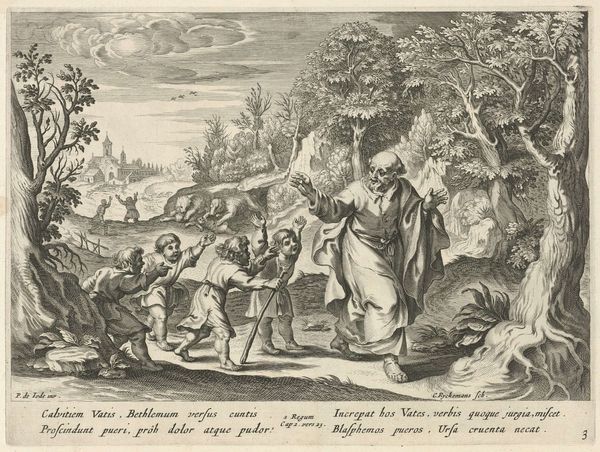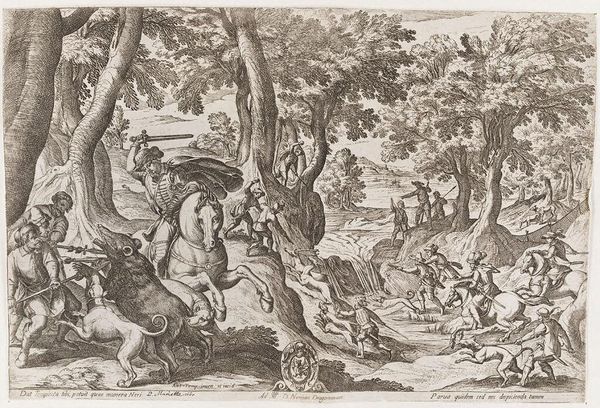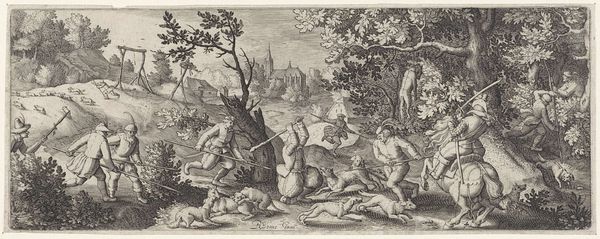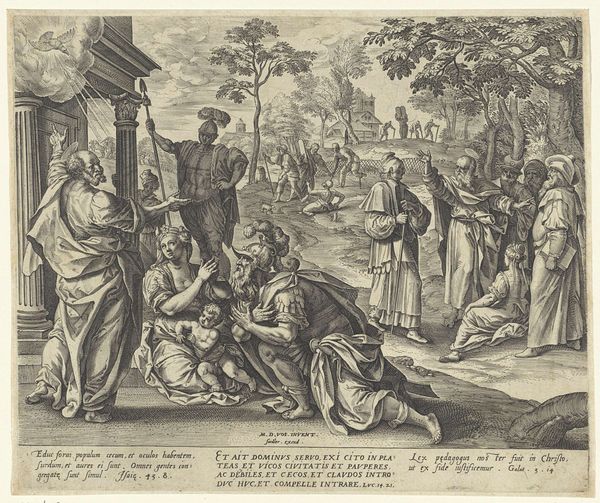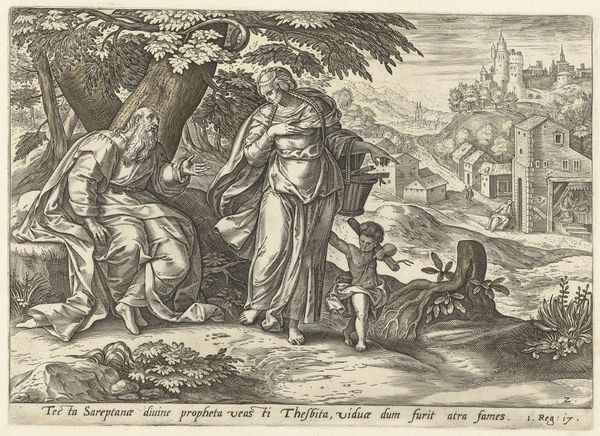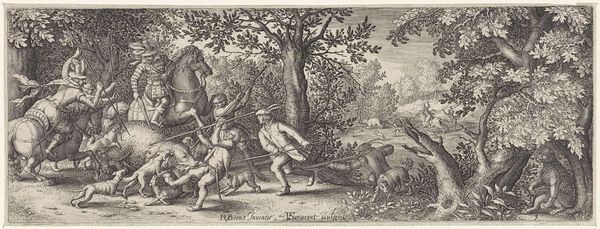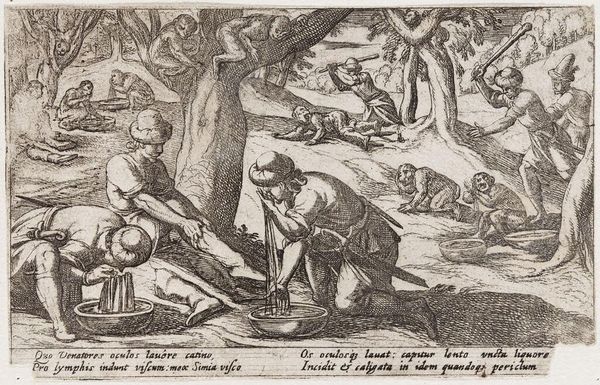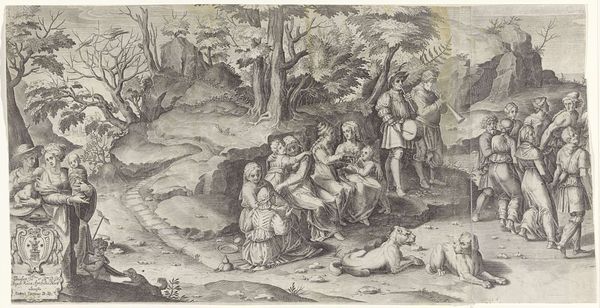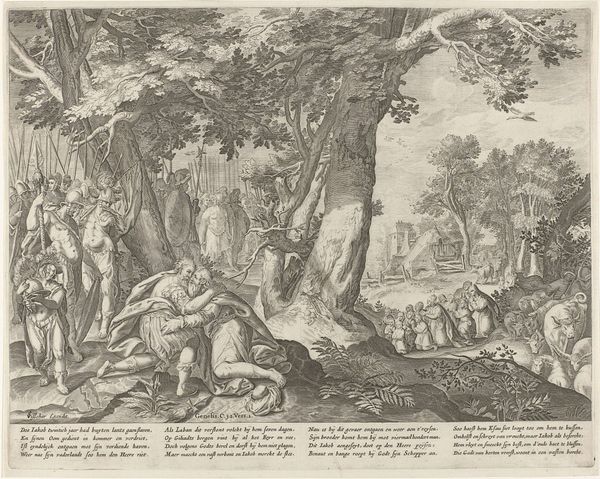
drawing, print, ink, engraving
#
drawing
#
narrative-art
# print
#
pen sketch
#
pencil sketch
#
landscape
#
figuration
#
ink
#
pencil drawing
#
ink drawing experimentation
#
pen-ink sketch
#
pen work
#
history-painting
#
northern-renaissance
#
engraving
Dimensions: height 200 mm, width 246 mm
Copyright: Rijks Museum: Open Domain
Curator: This print, whose creator remains anonymous, is titled "Satan zaait onkruid tussen het graan." The Rijksmuseum holds this engraving, dating from sometime between 1585 and 1700. Editor: It strikes me as theatrical. The raking light and shallow space make it seem almost like a stage populated by figures caught between repose and alertness. Curator: The composition relies on the interplay between horizontal and diagonal lines, drawing the eye from the sleeping figures to the active Satan figure and, further back, into the landscape itself. There's a real formal tension achieved between the figures in dynamic poses versus those who appear sedentary or asleep. Editor: That central figure does stand out, but his posture and prominent placement beg questions: who exactly benefits from this pastoral scene of vulnerable slumber? What social structures allow for such explicit violation? The text at the bottom suggests "While men slept, his enemy sowed tares among the wheat". Curator: The engraving's sharp lines and tonal gradations enhance the drama and the detail and further serve to emphasize a complex, almost theatrical, allegory about vigilance and unseen threats. It’s a work of striking detail, no doubt. Editor: Detail, certainly, but the question of whose stories, experiences, and perspectives this representation upholds still resonates. This "enemy" seems external, almost a force of nature. Is there a possibility, though, that we should interrogate what makes certain members of our societies vulnerable to such "attacks" in the first place? Who benefits from keeping certain populations disempowered and in the dark? Curator: A stimulating alternative reading to a striking Northern Renaissance engraving! Editor: Indeed, I believe these conversations challenge us to consider what purpose art history can truly serve in contemporary life.
Comments
No comments
Be the first to comment and join the conversation on the ultimate creative platform.
